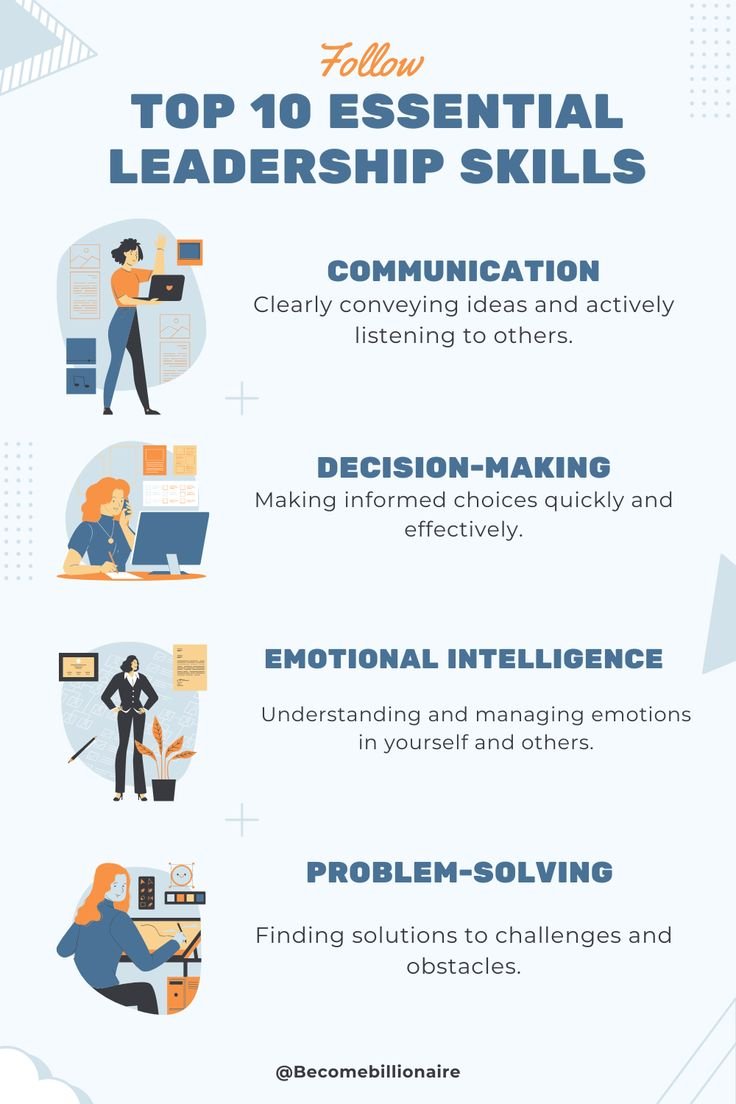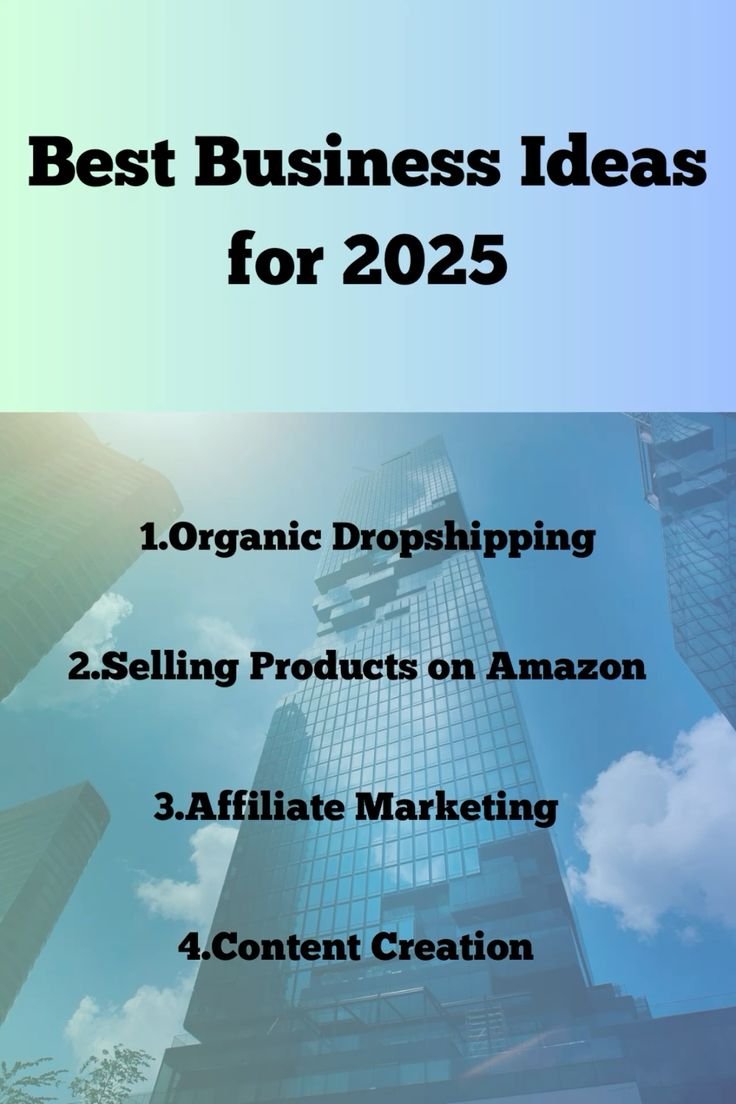In 2025, leadership in business is more dynamic and complex than ever. The rapid pace of technological advancements, evolving consumer demands, and shifting work environments require leaders to adapt and grow continuously. Strong leadership is essential to drive organizational success, maintain a positive culture, and navigate the challenges of the modern business world. In this article, we will explore the key leadership skills required for success in 2025, helping you stay ahead in an ever-changing business landscape.
1. Adaptability and Agility
In today’s business world, adaptability is no longer just a useful skill—it’s essential. Leaders who can quickly adjust to market changes, new technologies, and unexpected challenges are better positioned to guide their organizations through uncertainty.
- Key Developments: The COVID-19 pandemic, climate change, and political shifts have highlighted the importance of adaptability. In 2025, leaders must be able to pivot strategies, embrace new technologies, and lead teams through sudden disruptions.
- Why It Matters: Organizations that can quickly adapt to change are more resilient and better equipped to seize new opportunities. Leaders who foster a culture of adaptability encourage innovation and problem-solving, essential for long-term success.
2. Emotional Intelligence (EQ)
Emotional intelligence (EQ) remains one of the most critical leadership skills in 2025. The ability to recognize and manage emotions—both in oneself and in others—can strengthen relationships, improve communication, and lead to better decision-making.
- Key Developments: As remote and hybrid work become more common, effective leaders must foster trust, empathy, and strong communication within their teams. EQ plays a critical role in maintaining a connected, motivated, and productive workforce in these settings.
- Why It Matters: Leaders with high EQ can better manage conflicts, motivate employees, and create an inclusive work environment. By recognizing the emotional needs of their teams, they build stronger connections and a more collaborative culture.
3. Data-Driven Decision-Making
Data-driven leadership is vital in 2025, as businesses increasingly rely on big data and analytics to inform decision-making. Leaders must be able to interpret data, use it to guide strategies, and continuously monitor performance to ensure objectives are met.
- Key Developments: Advanced analytics, artificial intelligence (AI), and machine learning are providing leaders with valuable insights. Tools like business intelligence software are now widely used to track market trends, customer behavior, and operational efficiency.
- Why It Matters: Data-driven decisions minimize guesswork, enabling leaders to make informed, precise choices. By leveraging analytics, leaders can forecast trends, identify problems before they arise, and optimize business strategies for maximum impact.
4. Visionary Thinking
In 2025, visionary leadership is critical for businesses to stay competitive and innovative. Leaders must be able to create and communicate a compelling vision for the future, inspiring their teams to work toward long-term goals while staying focused on day-to-day objectives.
- Key Developments: With the rise of digital transformation, visionary leaders are utilizing emerging technologies such as blockchain, AI, and automation to drive innovation. Forward-thinking leaders also understand the evolving needs of their customers and can adapt products and services accordingly.
- Why It Matters: A clear and inspiring vision motivates employees, aligns them with company goals, and guides decision-making. It also allows businesses to anticipate changes in the market, giving them a competitive edge in an ever-evolving landscape.
5. Collaboration and Team Building
Effective leaders in 2025 recognize that collaboration is key to achieving success. As organizations become more diverse and workforces become increasingly decentralized, leaders must foster a collaborative environment where teamwork thrives.
- Key Developments: Digital collaboration tools such as Slack, Microsoft Teams, and Zoom are reshaping how teams interact, especially in remote and hybrid work environments. Leaders are focusing on building cross-functional teams to address complex problems and drive innovation.
- Why It Matters: Strong collaboration improves creativity, accelerates problem-solving, and enhances employee engagement. Leaders who foster a collaborative culture create a sense of belonging and encourage diverse perspectives, which are essential for innovation and growth.
6. Cultural Competence and Diversity Leadership
As the workforce becomes more global and diverse, cultural competence has become a critical skill for leaders. Understanding and respecting cultural differences while promoting an inclusive environment are essential for effective leadership in 2025.
- Key Developments: Companies are placing more emphasis on diversity, equity, and inclusion (DEI) programs, as employees demand more inclusive and respectful workplaces. Leaders must ensure their organizations actively embrace diversity and cultivate an environment where all individuals feel valued.
- Why It Matters: Diverse teams bring unique perspectives, which leads to more innovative solutions. Leaders who promote inclusivity not only enhance team performance but also improve employee retention and brand reputation, particularly among younger, socially conscious employees.
7. Sustainability and Corporate Social Responsibility (CSR)
In 2025, sustainability is a key driver of business strategy. Effective leaders must align their business operations with environmental, social, and governance (ESG) factors, ensuring that their companies contribute positively to society and the planet.
- Key Developments: As consumers become more eco-conscious, businesses are increasingly prioritizing sustainability. From adopting renewable energy solutions to reducing waste and improving supply chain transparency, leaders are incorporating CSR into their corporate ethos.
- Why It Matters: Businesses that demonstrate a commitment to sustainability attract socially responsible consumers, employees, and investors. Leaders who champion sustainability drive innovation, improve brand loyalty, and contribute to long-term environmental health.
8. Resilience and Crisis Management
In 2025, the ability to manage crises effectively is more important than ever. Whether dealing with economic downturns, natural disasters, or internal challenges, leaders must remain calm under pressure and guide their organizations through turbulent times.
- Key Developments: Leaders are using predictive analytics and scenario planning to prepare for potential crises. In addition, crisis communication strategies are evolving, with a greater focus on transparency and rapid response.
- Why It Matters: Resilient leaders can maintain stability and drive their businesses through challenges. Crisis management ensures that businesses can recover quickly, minimize damage, and maintain stakeholder trust during difficult times.
9. Continuous Learning and Adaptation
In the fast-paced business world of 2025, continuous learning is vital for effective leadership. Leaders who prioritize their personal development and stay up-to-date on industry trends are better equipped to make informed decisions and inspire their teams.
- Key Developments: With the rise of online courses, virtual conferences, and mentorship opportunities, leaders have more access than ever to learning resources. Many companies are encouraging their leadership teams to participate in leadership development programs to enhance their skills.
- Why It Matters: Continuous learning ensures that leaders stay competitive and capable of addressing emerging challenges. It also sets an example for employees, fostering a culture of growth and innovation within the organization.
10. Empathy and Human-Centered Leadership
In 2025, leadership is becoming more human-centric. Empathetic leaders who understand the needs, emotions, and well-being of their employees are able to foster a loyal, engaged, and productive workforce.
- Key Developments: With the shift to remote work and a greater focus on work-life balance, leaders are recognizing the importance of mental health support and flexible working conditions. Employee well-being programs are increasingly seen as essential for maintaining morale and productivity.
- Why It Matters: Empathy builds trust and loyalty, which in turn drives employee satisfaction and retention. Leaders who listen to their employees’ concerns and prioritize their well-being create a positive work culture, leading to increased motivation and higher performance.
Conclusion
Effective leadership in business in 2025 requires a diverse skill set, blending adaptability, emotional intelligence, and technological prowess. Leaders must be able to guide their organizations through rapid changes, foster collaboration, and prioritize sustainability while driving innovation and growth. By embracing the key leadership skills discussed in this article, business leaders can successfully navigate the complexities of the modern business world and position their companies for long-term success. Continuous learning, adaptability, and a focus on people will remain central to leadership excellence in 2025 and beyond.







